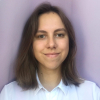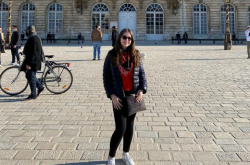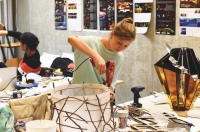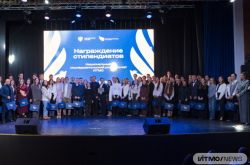Even though most events were moved online, ITMO students still can participate in the competition for partial funding support and receive new skills from home. They can apply for various short-term (less than one month long) events, such as online schools, seminars, championships, etc. ITMO University can reimburse up to 70% of their expenses. The competition is available all year long, but your application must be submitted at least a month before the chosen offline event and a week before an online event.
We already shared stories of our students who went to Spain, the UK, the Czech Republic, and other countries, as well as participated in a prestigious online conference to acquire new knowledge and skills. Today, we publish opinions of ITMO students who attended short-term online schools.
Alfiia Shakhmameteva

Student at the Information Technologies and Programming Faculty
Introduction to Data Analytics in R, Maastricht University, Netherlands
Why this school
It was not my first time participating in an international summer school, but the first time when it happened online. I like the short-term format: it allows you to not only learn about a certain field but also increase your level of expertise and learn more details. I applied for this school because I liked the way the host university described the program. Plus, I’ve read reviews by students of past summer schools arranged by Maastricht University, and they were so motivational that they made me want to join myself.
Application process
The main thing is to understand what you would like to get from the school, what goals you have in mind. Once you’ve established that, it becomes easy to write a letter of motivation – it might even be hard to stay within the word count limits. The hardest thing for me was to describe my skills, personality, and motivation in a short text. Other than that, I wouldn’t say that the application process is hard. It’s very structured and logical. Plus, ITMO University provided me with all the required documents very quickly. It’s important to apply in advance before the deadline.
Online format
I liked it. Our teacher was very excited about sharing their experience and involving students in the work – it was obvious even through Zoom. My classmates were also very motivated and it influenced my perception of the course as well.
The advantage of the online format is that there is no need to travel in order to take part in a, say, Dutch school – you can do so without leaving home. Plus, you don’t have to spend money on traveling and getting a visa.
However, offline communication and interaction are very different. Summer schools usually include social and cultural programs so that students would be able to meet each other outside the classroom, travel, and see the sights. So, offline participation is more open for that kind of activity. During online learning, you only discuss home assignments.
The school
During the school, I’ve been studying data analysis using the R programming language, which is mostly focused on statistical data.
The classes took place every day in the form of lectures and discussion or practice lessons. We had daily homework and then discussed tough spots. At the end of the course, there was a proctored exam. I’d say the exam was pretty difficult.
Most of all, I liked how motivated our teacher was. Also, the course was very well-structured and included lots of unconventional tasks that require thinking outside the box. Plus, it was great to see involved classmates.
In order to learn as much useful information as possible, you need to be engaged and pay attention to details. Plus, you should manage your time – for example, take some days off work, because otherwise, you’ll try to combine work and studies, which will affect your results.
Tips for future applicants
I’d like to give several tips. Firstly, you should apply in advance and check the deadlines, as there are often several weeks between the last day for submission and the first day of classes. Secondly, before the school begins, determine your aim and write down the questions you would like to receive answers to during the course. Thirdly, sleep well to have enough energy for getting new fascinating experiences!
Marina Kleshchelskaya
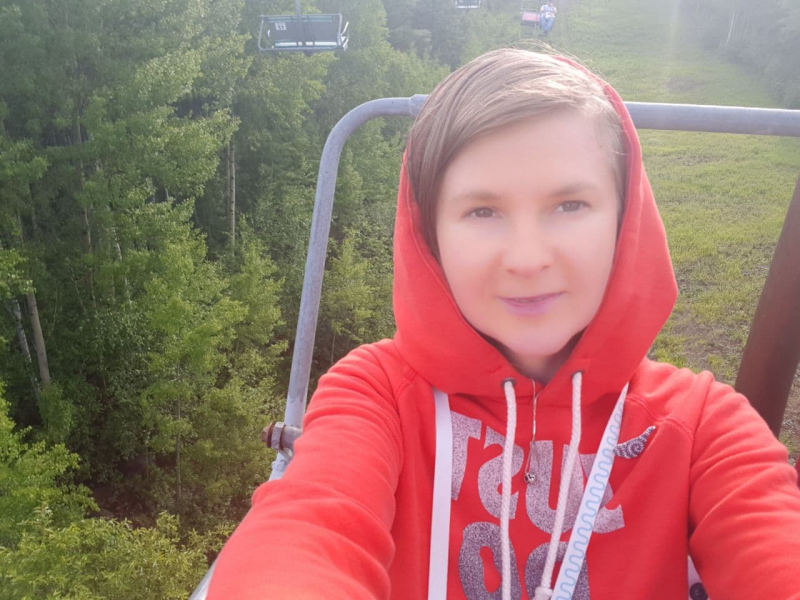
Master’s student at the Institute of Design & Urban Studies (during the time of participation)
Design of an integrated model for territory, Marsh School of Architecture
Why this school
During lectures at ITMO, our teachers talked about the space-syntax methods, and it seemed fascinating to me. Therefore, when I found out that there was a school dedicated to this tool, I decided to take part and applied for ITMO’s competition for partial funding.
Online format
I was ready to participate in the online event and knew what it would be like because we’d been studying online since March. However, it was difficult to keep track of some of the technical aspects, as the school consisted not only of lectures but also of practical work. We had to follow what the teacher was doing and keep up with everything, but we worked at a comfortable working pace.
Advantages of studying online
When the school is held online, you’re almost guaranteed to be accepted. Distance is no longer an obstacle and you can visit schools around the world from anywhere. Also, when you’re traveling to an offline school, something can get in the way, and it becomes harder to reach your destination: something can go wrong, you can be late for class, and so on. On the other hand, it’s difficult to be late for a Zoom lesson or miss it (unless something totally unexpected happens). If it wasn’t for the online format, I probably wouldn’t have entered the school.
The school
In Zoom, we studied space-syntax tools for working with various types of analysis. The program consisted of several parts: an introduction to working with spatial data, the basics of spatial analysis, and in-depth lessons on various types of analysis. Then, we were engaged in the integration of the obtained functional and spatial data, determined the relationships between the parameters, and thought of ways to apply the results to models of the territory, as well as how to predict and determine the economic or even social effects of the territory development. Each lesson consisted of theoretical and practical parts.
I really liked the way the school was conducted: the staff helped with any questions, even the technical ones. This is very important because if you can’t make the required programs work, you won’t be able to finish the course. A powerful team was behind the school.
The key to benefit from any activity is to apply the acquired skills right away. It’s very tempting to revise the material later, but this probably won’t happen. Going through training “for future use” is a waste of time and resources. You need to understand clearly why you are participating and how and when you will apply the obtained skills.
The school provided me with tools that I will use in my research. In particular, spatial GIS analysis for choosing the most convenient location for an object.
Lada Zimina
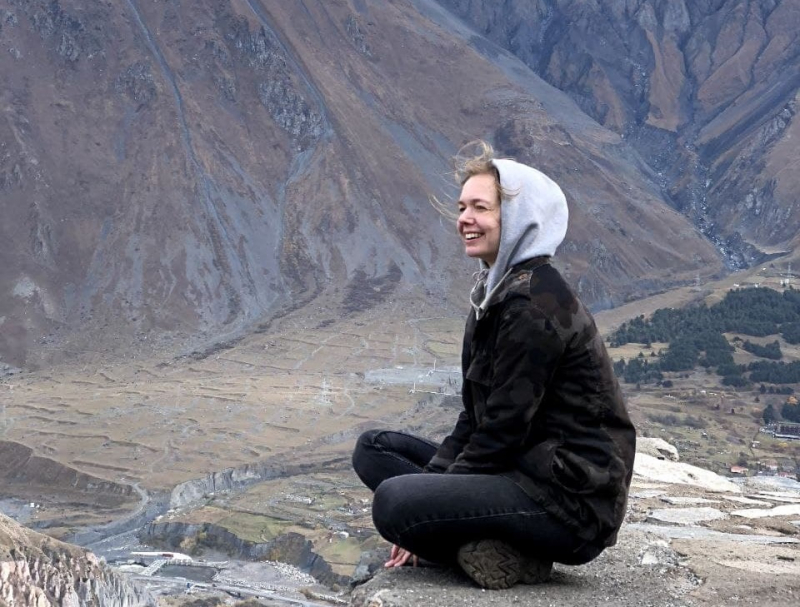
Master’ student at the international Data, Culture and Visualization program
Exploring Culture through Data: Digital methods & Data practices, Utrecht Data Summer School, Netherlands
Online format
Overall, I liked it. People from all over the world with different cultural and educational backgrounds gathered together, so it was interesting to meet them. Utrecht Summer School was quite intense. Throughout the entire week, we were in Microsoft Teams all day long, listening to lectures, working with different tools, and collaborating on team projects. The activities changed all the time, so there was no burnout.
Among the advantages are comfort and freedom. There was no need to wake up in the morning and go somewhere. However, I miss traveling, studying offline, and in-person interaction.
The learning process
On the first day, we listened to the introductory lecture and then chatted to get to know each other, tried to find data points (objects that can collect data) around us, and come up with ways to research them. The following days began with workshops on network analysis, basic Python programming, and representative visualizations. Then we split into several groups and completed our tasks and final projects. Lectures took place in the evening. Their topics varied every day, but in general, they were all about the critical approach to data analysis.
I especially liked podcast lectures. A couple of times I just went out for a stroll in the park while listening to them.
What to keep in mind
You should try to be constantly focused on studying without distractions and ask lots of questions. During the application process, communication skills and patience are also important – in case you have to re-submit some documents. For example, I emailed the school’s organizers twice so that they would edit invitations and certificates, and everyone was very considerate and made the edits quite quickly.
Schools to apply for in 2021

ITMO students can apply for partial funding at any time, but at least a week before the online event starts. Here are several online schools you can apply for in 2021. Three of them will take place in February and one – in May. You can find more options elsewhere, for example, in the educational calendar on ISU.
Wessex Institute, the UK
Short Course on Smart Cities: Lessons from a Pandemic 2021
February 17-19, 2021
At this workshop, the participants will consider both theoretical and practical insights from an ongoing crisis related to the COVID-19 pandemic. The workshop aims to provide a platform to discuss the need to adapt urban planning not only toward responding to an aftermath of a crisis but also on a permanent basis.
Short Course on Introduction to Air Pollution Modelling
May 11-13, 2021
At the course, the participants will discuss all aspects of air pollution: emissions, atmospheric processes, chemical concentration and deposition impacts, and adverse effects on humans and the environment. Then, they will focus on the available mathematical and numerical methods used to simulate, understand, and predict air pollution phenomena. Finally, they will be presented with available software tools for simulating air quality matters, including the simulation of meteorological parameters needed for air quality analyses.

University of Fribourg, Switzerland
Both schools start with a general course ‘A brief introduction to Switzerland’, where you get a view of Switzerland through the lens of history, economics, and social sciences supported by statistics and facts, as well as meet all participants.
International Business, Innovation and Entrepreneurship
February 14-19, 2021
The participants will understand strategies utilized in the communication and management of multinational corporations, especially in the European context, as well as study the fascinating innovation and entrepreneurial scene in Switzerland that makes the country a leader when it comes to innovation.
R Programming
February 14-19, 2021
Students of this program will learn R, an open-source programming language widely used in the fields of data analytics and statistical computing. The course includes an introduction to R (self-study), text analysis in R, and machine learning in R. You shall be able to create your own project in R at the end of the course.

